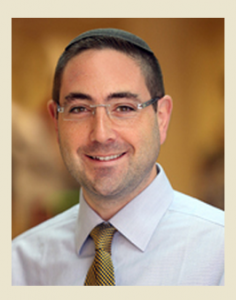
By Rabbi Ari Enkin, rabbinic director, United with Israel
The world celebrated the beginning of the New Year 2015 last week. Yet the Jewish people actually observe four New Year’s celebrations each year.
A little-known fact is that the Jewish people actually observe four New Year’s celebrations each year. The origins of these occasions can be found in the Mishnah (collection of early oral interpretations of the bible) and in Exodus 12:2, Deuteronomy 16:1, Numbers 29:1-2 and Leviticus 23:24-25. Here are the four Jewish New Years:
The 1st of the month of Nisan: The first New Year is the first day of the Hebrew month of Nisan, which usually falls in the early spring (around April). Nisan is considered to be the first month of the Hebrew calendar (although the years are counted from the 1st of Tishrei, the seventh month). The first of Nisan was considered the New Year when counting the years of the reigns of kings in ancient Israel. It is also the New Year for the cycle of Jewish holidays. The holiday of Passover is celebrated in Nisan, and hence, it is the first Jewish holiday of the year. Nisan in general and Passover in particular are considered to be the anniversary of the founding of the Jewish nation.
The 1st of Elul: The second “new year” is on the first of Elul, the sixth month of the Hebrew calendar, which usually falls in the late summer (August). According to the Mishnah, this was the New Year for reckoning one’s animal tithe obligation (similar to April 15 in the US in terms of taxes). This New Year is generally no longer observed, although the date is widely observed as the day for beginning one’s material and spiritual preparations for Rosh Hashanah.
The 1st of Tishrei: This is the Jewish New Year that with which we are most familiar: Rosh Hashana. It falls on the first of Tishrei, the seventh month on the Hebrew calendar, which usually occurs in September or early October. We are told that God judges the entire world on Rosh Hashana.
The 15th of Shevat in known as Tu B’Shvat, the New Year for trees. It generally falls in January or February. According to the Torah, fruits many not be eaten from trees less than three years old. Hence, Tu B’Shvat is the day used to determine the age of the trees…it’s their birthday, no matter when they were “born”! Unlike the first of Nisan and the first of Elul, Tu B’Shvat is still widely observed as a minor Jewish holiday.
The secular New Year, of course, is observed on January 1 – the first day of the year on the modern Gregorian calendar that is celebrated by virtually the entire world in a variety of ways. Some hearty individuals brave an annual dip in ice-cold water, most famously by members of the Polar Bear Club.
In fact, New Year’s Day is probably the world’s most celebrated public holiday, often observed with fireworks at the stroke of midnight. At the New Year celebrations held in Dubai to mark the start of 2014, the world record was broken for the most fireworks set off in a single display, which lasted for six minutes and saw the use of over 500,000 fireworks. In many countries, such as Canada, Italy, Spain, the UK, and the United States, the first of January is a national holiday.
Also read about the true origins of New Year’s Day/January 1st.
Send Passover Packages to Needy Israeli Soldiers - Bring Them Joy!
We are honored to thank the young men and women of the IDF who risk their lives every day to protect the citizens of Israel. Since October 7th, soldiers have been on the battlefield for months - many are hoping to come home for Passover.
Join us in sending Passover food packages (and personal notes) to Israeli soldiers and their families.
Many soldiers spend the Passover holiday with needy families back home. The soldiers greatly appreciate your love and concern. Bring them Passover joy!
CLICK HERE TO SEND YOUR PACKAGE AND NOTE TO ISRAELI SOLDIERS!



